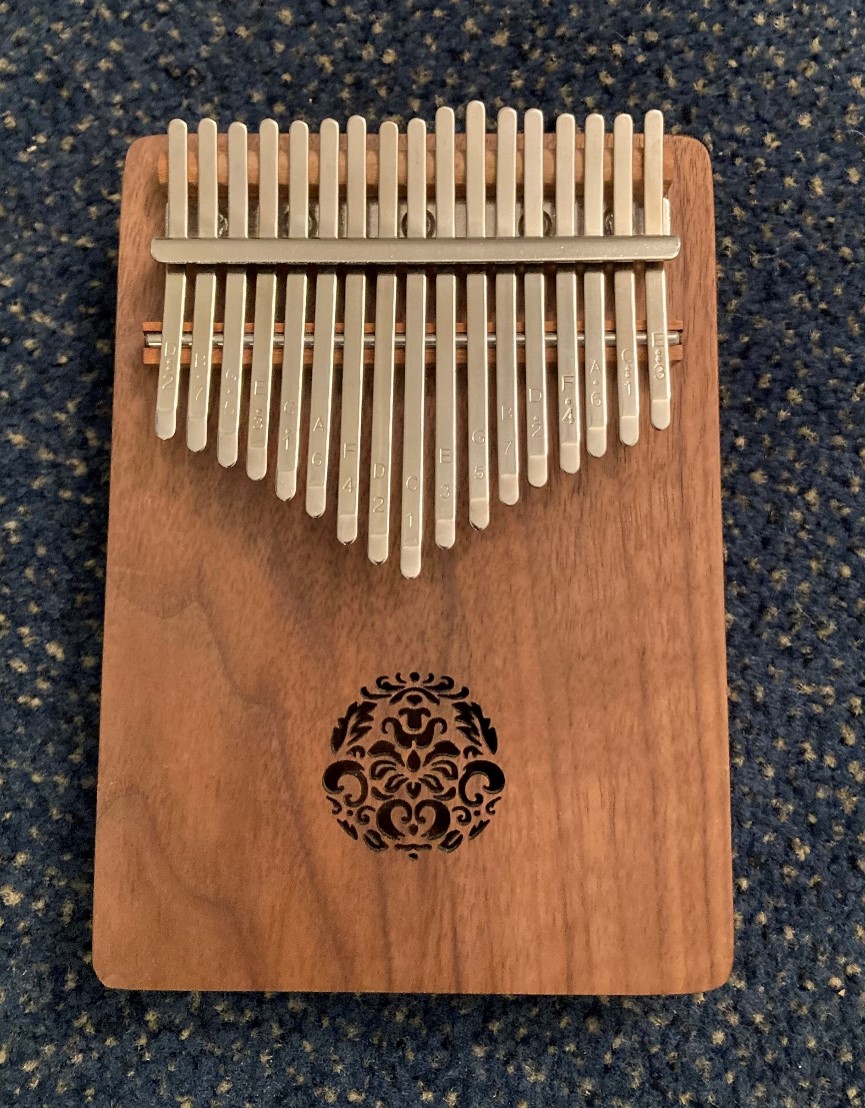
The Kalimba: A DIY Music Project!
by Alyssa Cowell, Catoctin School of Music
Today’s instrument is a little extra special because it is an instrument that the author designed and built from scratch! Let’s get to know CSM’s folk instruments – meet the Kalimba!
CSM’s Kalimba was made during the pandemic lock-down by yours truly – it was a super fun learning experience that utilized some non-traditional, cutting-edge tech to create a traditional instrument from Zimbabwe.
What is a Kalimba?
A Kalimba or Mbira (or finger harp, gourd piano, and many other names) is a small, trapezoid-shaped, handheld instrument from the lamellophone family. It is made up of a soundbox and metal tines mounted across two wooden bridges. The tines are arranged in chord patterns using the notes of a C Major scale but can be re-tuned to alternate tunings with the use of a small hammer.
How do you play the Kalimba, and what does it sound like?
Holding the Kalimba in two hands, use the thumbs to quickly press or tap the ends of the kalimba’s metal tines. Advanced players use the sound holes on the soundbox to produce a vibrato-like sound by covering and uncovering the holes during a note’s sustain time. CSM’s kalimba is tuned to the key of C Major – making a wide variety of simple songs available for playing. Kalimbas sound very similar to a music box, but a little more mellow. It also reminds me of a vibraphone or glockenspiel.
How do you build a Kalimba?Traditional kalimbas are made of wood and metal, and there are a lot of variations for building your own. CSM’s kalimba has a hollow soundbox made of walnut, with bridges made from cherry wood. The parts were designed using graphic design software and cut using a laser cutter. Some kalimbas are a single piece of solid wood, blocks of acrylic, or cast resin. The metal tines were a kit ordered off the internet, but many traditional instruments are made from found materials, like scrap wood and scrap metal. Some kalimbas have the addition of resonators and electronic pickups to increase the volume and allow for use in recording sessions.
